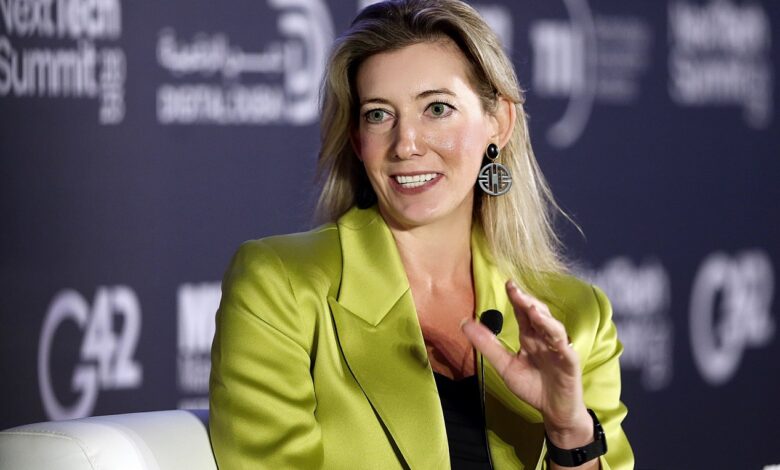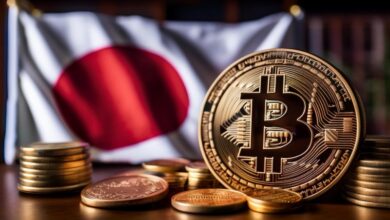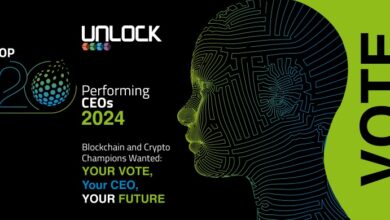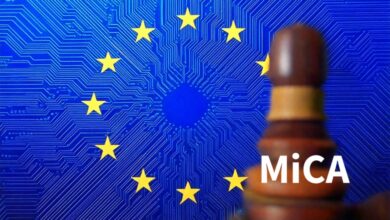Bridging Innovation and Tradition in Liechtenstein’s Digitalization: Insights from Dr. Clara Guerra
Exploring the Blockchain Act and Token Definition in Regulatory Innovation

In a recent interview with Unlock Blockchain at the World Blockchain Summit, Dr. Clara Guerra, Director of the Office for Financial Market Innovation and Digitalization for the Liechtenstein government, shed light on the principality’s pioneering role in blockchain innovation and beyond. Dr. Guerra’s remarks underscored Liechtenstein’s proactive approach to embracing emerging technologies while maintaining regulatory clarity and consumer protection.
Setting the Stage: Liechtenstein’s Proactive Approach
A dedicated competence center and operating unit is critical to navigating the rapidly evolving landscape of financial market innovation and digitalization. According to Dr. Guerra, Liechtenstein recognized the importance of not just reacting to technological advancements but actively shaping and implementing regulatory frameworks. However, this proactive approach goes beyond regulatory frameworks; it extends to building a future-proof infrastructure and spearheading innovative ideas and projects to foster innovation.
“I used to work in the hi-tech, private sector space. The important thing was to actually bring that innovation mindset, competence and approach into a state framework and how we, as a government, approach innovation in this very fast-moving sector with unprecedented exponential growth and development,” said Dr. Guerra.
Crafting a Regulatory Framework: The Blockchain Act
The pivotal moment for Liechtenstein came already in 2016 and 2017 when the first wave of FinTech and blockchain companies approached its financial market authority for regulatory guidance. Understanding both the challenges and potential inherent in these technologies, Liechtenstein embarked on crafting landmark legislation, culminating in the introduction of the Blockchain Act which became applicable already in January of 2020.
The Blockchain Act established a registration and supervision regime for crypto asset service providers, ensuring user protection and legal certainty for companies operating within the blockchain ecosystem. Dr. Guerra highlighted the success of this approach, noting Liechtenstein’s growing international recognition as a hub for blockchain innovation. “That has proven very successful and also placed us on the map and made us part of the international discussion.”
Key Elements of Liechtenstein’s Regulatory Approach
Liechtenstein’s regulatory approach to virtual assets has two main elements. Firstly, the registration and supervision of crypto asset service providers ensures compliance with minimum capital and operational requirements. Secondly, the introduction of a dedicated civil law for tokens provides a legal framework for the transfer and legitimation of tokens within Liechtenstein’s civil law system.
Embracing the Token Economy
Dr. Guerra stressed the importance of not only governing financial market instruments but also embracing the broader token economy. Liechtenstein’s law for tokens is designed to be principle-based, adaptable to various use cases, and future-proof against technological advancements.
At the heart of the Liechtenstein Blockchain Act is the Token Container Model, where a token acts as a container that can hold any right. This means a right representing a real asset, like stocks, bonds, real estate, commodities, or fiat money, can be ‘loaded’ into the container. Conversely, the container could be empty, as in the case of Bitcoin’s digital code. This model helps distinguish between law and technology by treating them separately, despite the digital encoding of specific rights as tokens. These rights are transformed, although the underlying asset remains unchanged. This principle-based approach ensures it is versatile and applicable to a wide range of use cases,” concluded Dr. Guerra.
Looking Ahead: Integration with MiCA Regulation
Dr. Guerra highlighted the forthcoming Markets in Crypto-Assets (MiCA) regulation proposed by the European Commission, which she anticipates will serve as a catalyst for blockchain innovation in Europe. As a proactive member of the European Economic Area (EEA), Liechtenstein is adopting the MiCA regulation while further refining its own regulatory framework. This integration will enable Liechtenstein-registered and supervised Crypto Asset Service Providers to benefit from passporting, facilitating their operations across the EU-market while enhancing regulatory coherence.
“This is all working in the broader context of the token economy. For us, it’s about quality, future-proofing, and stability, while being future-focused and agile. It was crucial for us not just to attract the masses but to provide the best possible legal and regulatory framework for this new technology and the service providers. We did not want to govern only financial instruments but to encompass the entire token economy. To achieve this, we devised civil law for tokens that is principle-based rather than rule-based. We defined a token as a piece of information on a Trusted Technology (TT), such as a blockchain system, which can represent claims or rights of membership against a person, rights to property, or other absolute or relative rights. This new model expands the token’s use beyond securities to cover music rights, patents, utility coins, software rights, and more.”
Liechtenstein is indeed emerging as a trailblazer in blockchain regulation and innovation. By combining regulatory clarity with a forward-thinking approach, it is rapidly fostering a safe, secure, and thriving environment for digital transactions and services in the emerging era of blockchain technology.





